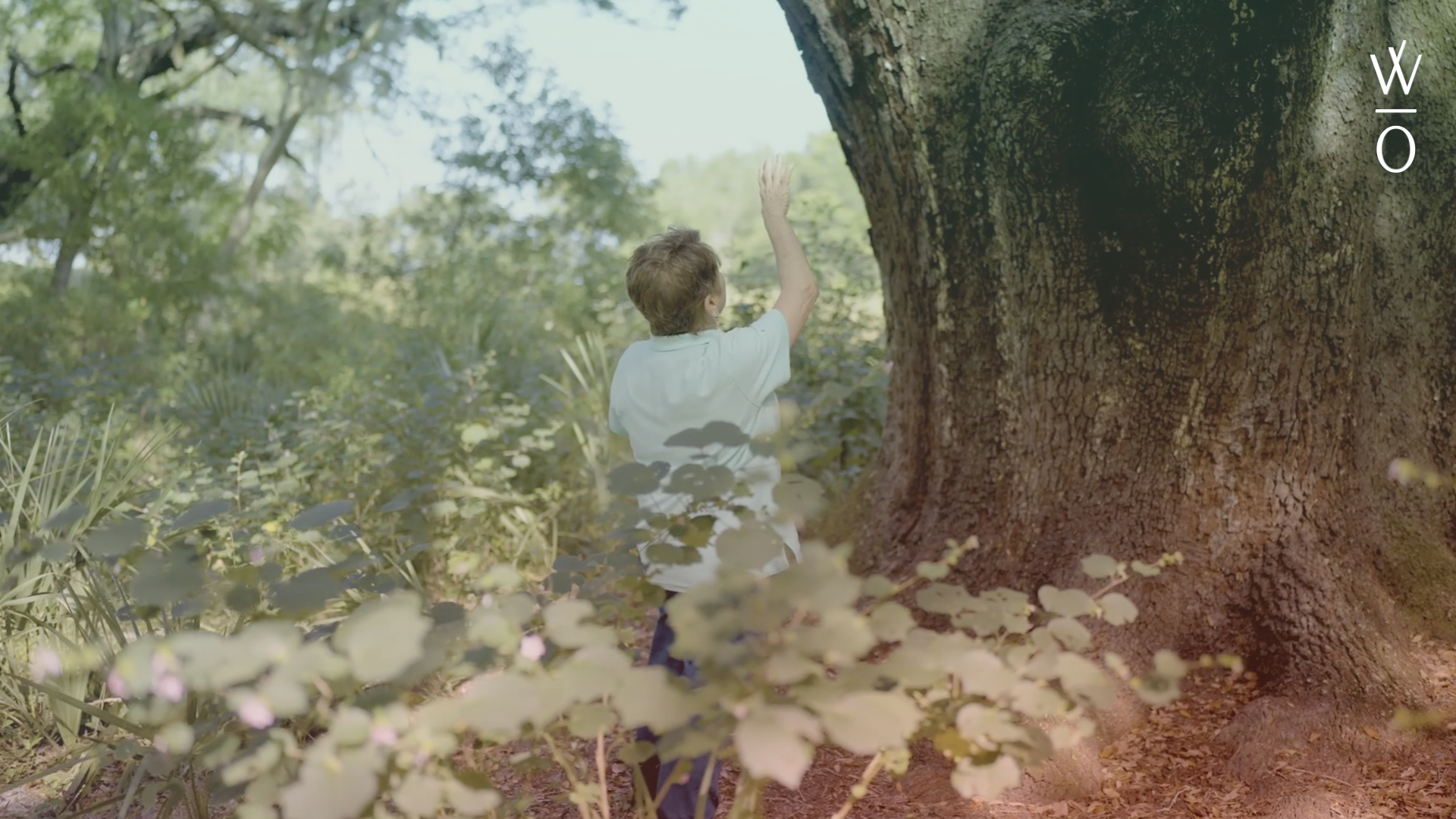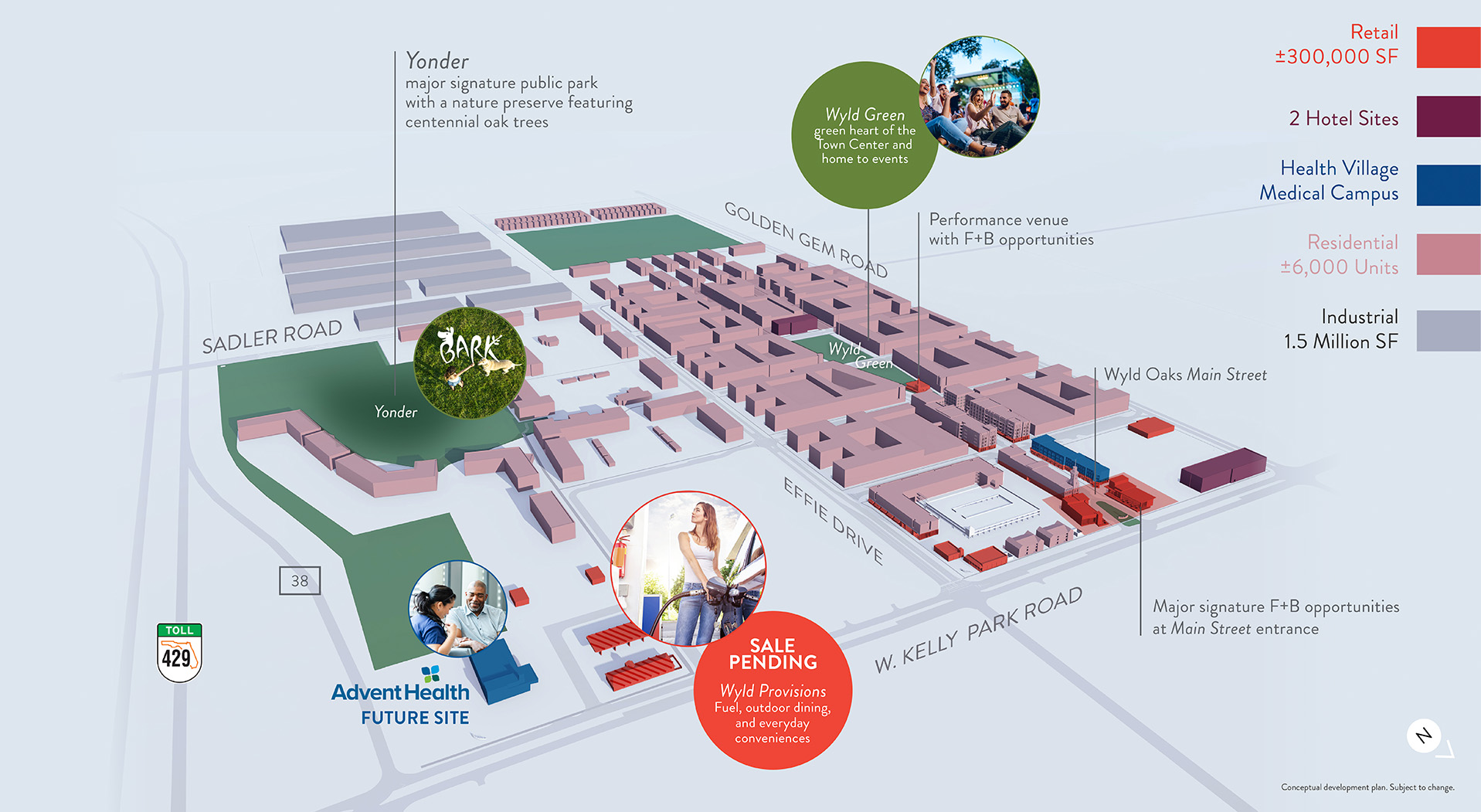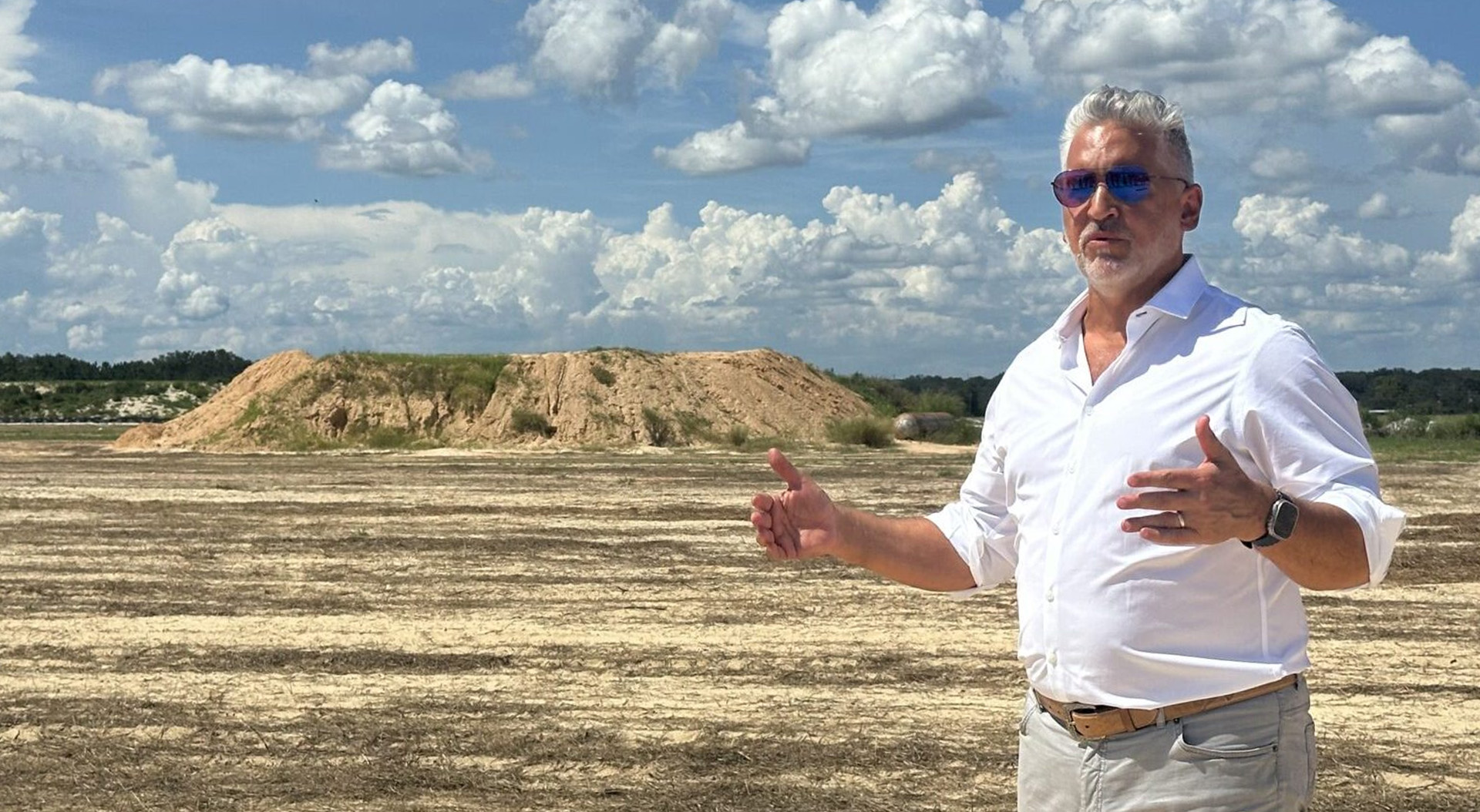From the beginning, an important element in the vision for Wyld Oaks, the new 200+ acre mixed-use destination growing in Apopka, Florida, has been the preservation of its muses: a grove of majestic Southern Live Oaks. This emerald green canopy includes heritage trees that are upwards of 50 feet tall and estimated to be 100 years old (or more). These trees inspired not only the name of Wyld Oaks, but also the plan to preserve this area as a focal point and community park called Yonder.
Partners in Preservation
During a recent site visit, Mary Edwards, a registered consulting arborist, surveyed the property to provide insights and recommendations for preserving these legacy trees.
“This is the ideal time to be here, before any ground has been turned over. Right now, these trees are in their perfect state. This gives us the opportunity to do a clear assessment and give the development team direction on how to preserve these trees properly from the very beginning.”
– Mary Edwards, Arborist
Typically, Edwards is brought into development projects at a later stage, after impacts to the property have already begun. It’s often more efficient and much less expensive for a master developer to simply clear a site rather than make the effort to save historic trees.
That’s where Wyld Oaks is different.
Early on, when members of the development team walked the site and discovered the rare opportunities it offers for not only open green spaces and parks, but also shaded sanctuaries from Central Florida’s sunny days, they knew that they needed a solid preservation plan. As Edwards says, “It’s a process that takes a lot of thought and collaboration to decide how we preserve and prune trees and how we fence off those trees to make sure there’s no root impact. It’s a long and in-depth process … it’s really a partnership.”
“It’s very difficult in our industry to find developers that are willing to work in advance to save our historic and heritage trees. Working with Wyld Oaks at this stage of the game is an arborist’s dream.”
– Mary Edwards, Arborist
The Value of Heritage Trees
A 2023 report from The Yale Center for Environmental Communication listed the numerous health benefits of urban forests, such as:
- Reducing air pollution
- Curbing heat and sun exposure
- Improving attention
- Relieving stress
- Promoting active lifestyles
Mary Edwards agrees with those findings. “It’s been proven that trees add value and not only to land. They add value to life and to happiness. People spend years trying to get a mature tree canopy. At Wyld Oaks, they have it. It’s already here. We just have to preserve it,” states Edwards.
Preserving the Wild at Wyld Oaks
When Mary Edwards first visits a site, she looks at tree structure and the health and vitality of the canopy. She expects to see trees that are thriving in their natural setting and those that are dead, dying, or in decline due to structural defects or invasive species.
Since the trees at Wyld Oaks are untouched and have never been pruned, she found several issues like canopy encroachment and inclusions, which occur when trees and branches grow together too closely. She also found natural damage resulting from wind and lightning.
It’s structural issues like these that can be a problem for sustainability—and safety—in a setting that will become a space for public use. Edwards says, “It’s important that we cull the unhealthy trees that are not going to be safe to the community so we can then preserve the large, heritage trees in place and highlight them.”
Into the Great Green Yonder
When Edwards began her initial survey at Wyld Oaks, she focused on the concentration of oaks in the area that will become Yonder, a 10-acre community park and nature preserve.
“Here I am on this site looking at these beautiful Southern Live Oaks that are 60-70 inches. They’ve grown well, and we might even find bigger trees than that. There are some beauties down there!”
– Mary Edwards, Arborist
Ed Linquist, the landscape architect for Wyld Oaks describes the plan for Yonder as a place where walking trails and boardwalks will allow people to explore, connect with nature, and appreciate these majestic trees up close. “Yonder isn’t only for the people who will live and work at Wyld Oaks. It’s an asset for the community of Apopka to enjoy for generations to come,” says Linquist.



